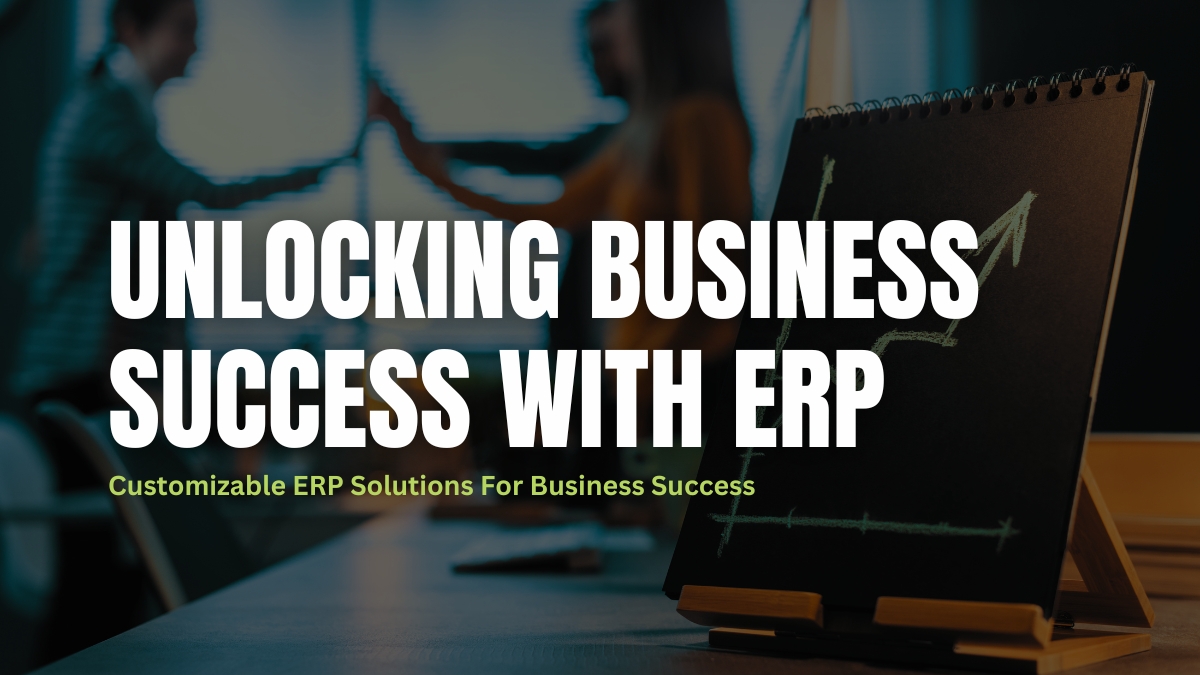Introduction
In today’s dynamic business landscape, organizations face unique challenges that demand flexible and adaptive solutions. One such powerful tool that can revolutionize how businesses operate is the Enterprise Resource Planning (ERP) system. While off-the-shelf ERP solutions are abundant, there’s a growing demand for custom-built ERP systems that align precisely with industry-specific requirements. In this article, we explore the benefits of custom ERP solutions, critical factors to consider when choosing an ERP system, and how corporations can leverage customization for success. Let’s explore Customizable ERP solutions for business success.
What Is an ERP System?
An ERP system integrates various functions of a business into one cohesive platform. Instead of isolated systems for different departments, ERP solutions consolidate processes and information, promoting efficiency and cross-departmental collaboration. Core functions include:
- Human Resources: Managing employee information, payroll, and onboarding.
- Finance & Accounting: Handling ledgers, payables, receivables, and financial forecasting.
- Operations: Streamlining procurement processes.
- Sales & CRM: Enhancing customer relationship management and sales orders.
The Beauty of Custom ERP Systems
- Tailor-Made Solutions: Every industry has its unique nuances and challenges. A one-size-fits-all ERP solution might not effectively address these specific needs. Custom ERP systems allow businesses to design solutions explicitly catering to their industry demands. This alignment ensures higher efficiency and better software capabilities aligned with business objectives.
- Scalability and Flexibility: Custom ERP systems offer scalability as your business grows. Unlike rigid off-the-shelf solutions, custom-built systems can adapt to changing requirements. Whether you’re expanding or transforming, your ERP system can evolve alongside your business.
- Enhanced Security: Custom ERP solutions provide robust and specific protection. Security breaches can result in substantial financial and reputational losses. With a tailor-made system, you can address security concerns effectively.
- Cost-Efficiency in the Long Run: While custom ERP development may involve upfront costs, the long-term benefits outweigh them. You won’t pay for unnecessary features, and you can optimize your investment as your business evolves.
- Competitive Advantage: A customized ERP system sets your business apart. It streamlines workflows, increases customer service, and boosts overall operational efficiency. Being agile and responsive gives you an edge in a competitive market.
- Improved User Adoption and Satisfaction: Employees find it easier to embrace a system tailored to their needs. Reduced resistance leads to smoother implementation and better user satisfaction.
- Long-Term Vendor Relationships: Custom ERP solutions foster stronger partnerships with vendors. Vendors understand your unique requirements and can provide ongoing support.
Key Considerations When Choosing an ERP Solution
- Business Objectives and Alignment: Define your strategic goals. Ensure the chosen ERP aligns with your business vision and mission.
- Scalability and Future-Proofing: Consider scalability—will the solution accommodate your growth? Can it handle increased transaction volumes, additional users, and new functionalities?
- Industry-Specific Features: Look for an ERP system that caters to your specific industry needs.
- Customization Capabilities: Can you tailor the ERP to match your workflows, terminology, and business rules?
- Integration with Existing Systems: Ensure seamless integration between your ERP and existing software.
- User Experience and Training: Evaluate the ERP’s user interface and available training resources.
- Deployment Options: Choose between cloud-based and on-premises deployment.
- Security and Compliance: Assess security features and compliance with industry standards.
- Total Cost of Ownership (TCO): Calculate the long-term costs beyond the initial license.
- Vendor Reputation and Support: Research the ERP vendor thoroughly.
- Mobile Access and Remote Work: Consider mobile ERP access and remote work capabilities.
- Data Migration Strategy: Plan data migration from legacy systems to ERP.
Conclusion
Customizable ERP solutions are no longer a luxury; they’re a necessity for businesses aiming to thrive in a rapidly changing environment. By investing in a tailor-made ERP system, corporations can unlock efficiency, security, and scalability, ultimately driving transformative change.
Remember, when it comes to ERP, one size doesn’t fit all. Choose customization, and watch your business soar! 🚀🔗.





